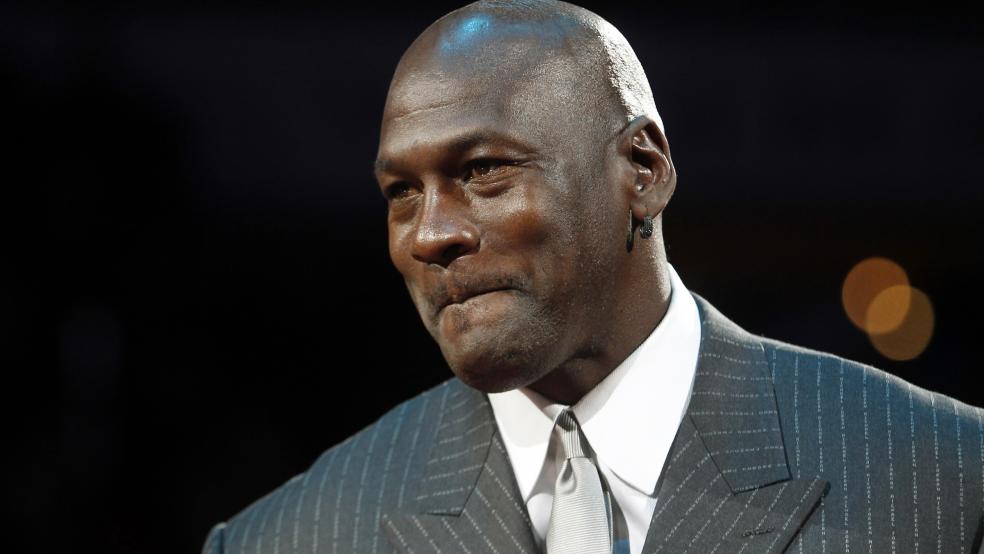It’s a well-known story in sports lore: After Hakeem Olajuwon was taken first in the 1984 NBA draft, the Portland Trail Blazers selected Sam Bowie next. The player they left waiting on the board? Michael Jordan.
That was 30 years ago this week — June 19, 1984. Jordan, of course, was selected by the Chicago Bulls, beginning an ultra-successful professional career that would include six championships and the building of a brand that still transcends the basketball court. As the NBA Draft gets underway Thursday night, an elite handful of prospective draftees can only hope to emulate Jordan’s success.
Jordan played his last NBA game in 2003. Ten years later, he earned a cool $90 million, according to Forbes, thanks largely to royalties from his deal with Nike. That was more than he earned in any year during his playing days — and more than any other athlete, retired or active, except for boxer Floyd Mayweather. (Fortune estimates that Mayweather will earn $105 million this year, and says that’s a “very conservative” approximation.) The Jordan brand now generates about $2 billion in revenue for Nike, with the 51-year-old superstar getting a cut of every sale.
That earnings power helped Jordan’s net worth climb past the billion-dollar threshold earlier this month, but his ownership stake in the Charlotte Hornets is his most valuable asset. Forbes estimated Jordan’s net worth at roughly $600 million and valued his ownership share of the team, which has reportedly climbed from 80 percent to 89.5 percent, at roughly $400 million.
Related: 9 Sports Superstars You've Never Heard Of
Jordan’s legend still carries weight from the sports fan’s perspective, too. In a Grey Flannel Sports Memorabilia auction that ended June 18, a Michael Jordan 1984-85 game-used road jersey — from a rookie season in which he started all 82 games and averaged 28.2 points per game — sold for $20,897 ($25,076 including auction fees).
In the same auction, a signed pair of Jordan’s game-used sneakers from Game 3 of the 1996 NBA Finals sold for $14,272 ($17,126 including auction fees). By comparison, the next two NBA memorabilia pieces offered in the auction — a Magic Johnson rookie jersey and a Shawn Kemp jersey — sold for a combined $15,112.
Top Reads from The Fiscal Times:



